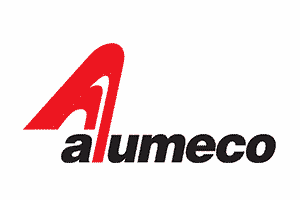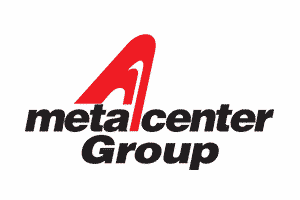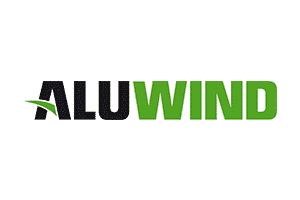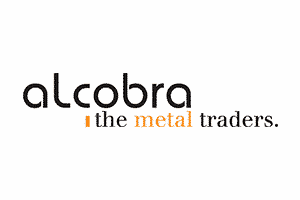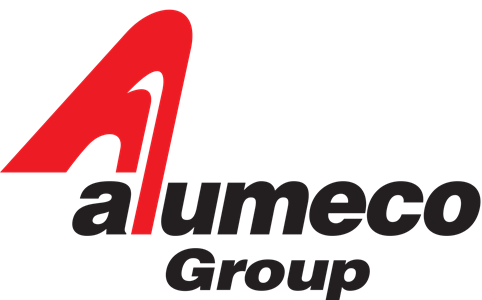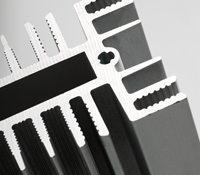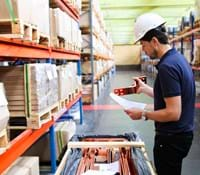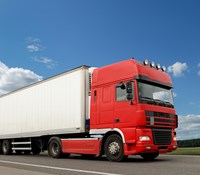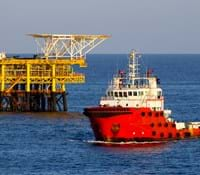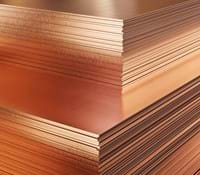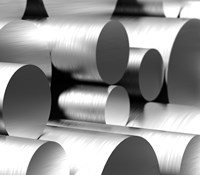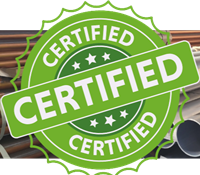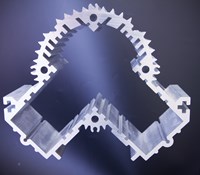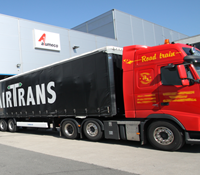CBAM: How does it affect you?
Last updated: October 10th, 2023.
The transition phase for CBAM has now begun. CBAM is the new Carbon Border Adjustment Mechanism from the EU which will be a tool to tax certain imported goods to avoid carbon leakage.
The first reporting phase began on October 1st, 2023, and the deadline for the reporting phase is January 31st, 2024.
On this page you can get a general idea of what the framework looks like for aluminium, iron and steel. Other rules may apply for other materials.
If you purchase goods through Alumeco, you will not have to handle the CBAM tax.
You can find the latest information from the European Commission here and webinars on the topic here.
What is CBAM?
CBAM, the Carbon Border Adjustment Mechanism, is a tool from the EU to tax imported goods based on their carbon footprint, just like goods produced in the EU are subject to a carbon tax.
If your goods purchased through Alumeco are subject to CBAM, we will handle the reporting.
The aim of CBAM is to avoid “carbon leakage” – the practice of outsourcing carbon intensive production to other parts of the world to avoid punitive measures in the EU.
CBAM is a key component in the EU’s “Fit for 55” plan, which is a roadmap to reduce carbon emissions from the EU with 55 % by 2030. The end goal, laid out in the European Green Deal, is to be carbon neutral by 2050.
Does CBAM affect you?
If you import aluminium, iron and steel from countries outside the EU, CBAM applies to you.
These are goods where the risk of carbon leakage is deemed high, and the list will be expanded as the framework is implemented.
If the country of origin is part of EU ETS, CBAM will not apply. Norway, Iceland, Liechtenstein and Switzerland are all part of EU ETS, and so are tax free areas such as Büsingen Helgoland, Livigno, Ceuta and Melilla.
Carbon taxes paid in a third country can be deducted from CBAM.
On any materials bought through Alumeco, we will handle CBAM. Our legal team is following the legislation process closely and will stay up to date on the regulations at any time.
When do you need to act?
The transition phase began October 1st, 2023 and will end in 2026.
During the transition phase, you will be required to submit a report of the carbon footprint for any goods subject to CBAM, but you will not be paying the CBAM tax. On any goods purchased through Alumeco, we will take care of the reporting for you.
The first deadline for submission of data is January 31st, 2024, accounting for the period from October 1st, 2023. During the 2-year transition phase, importers will report every quarter. The last reporting period ends on January 31st, 2026. After this, the actual tax will be implemented.
If you import goods that are subject to CBAM, you will need to register as an importer before January 1st, 2026.
What do you need to do?
If you purchase goods through Alumeco that are subject to CBAM, you will not have to do anything.
If you import goods yourself, you will need to register as a CBAM importer and report to the CBAM office in your country. You can find a list of national CBAM offices here.
The report includes:
- The amount of imported goods subject to CBAM. This will be based on the HS codes.
- Commodity codes/HS codes and country of origin of the materials.
- The combined direct and indirect emissions from the production of the goods (if this information is not available, the EU will provide a benchmark value for use in the calculation).
- Information on any carbon taxes already paid in the country of origin.
How does the CBAM tax work?
The administration of CBAM is based on certificates. In order to import goods that are subject to CBAM into the EU, you need to have corresponding CBAM certificates.
Only registered CBAM importers will be able to import material subject to CBAM. If you import goods from countries outside of the EU, you need to register as an importer before January 1st, 2026. The platform for registration is expected to be ready before the end of 2023.
The CBAM certificates will be handled through a platform, which the EU is yet to develop. The cost of the certificates will reflect the current ETS prices (ETS = EU emissions trading system), which are paid by European manufacturers.
The CBAM system is meant to be a transitional system from 2026 until 2034. After 2034, the system will be rolled back, and it will no longer be possible to import goods that do not comply with ETS. This means that from 2034, it will not be possible to import goods from manufacturers unless they have reduced their carbon emissions to EU level.
This will be a hurdle for countries that have not yet launched initiatives to reduce carbon emissions.
How much will the CBAM certificates cost?
The price is expected to be dynamic and increase as the total carbon emissions go up. This means that both your own indirect emissions – how many certificates you need – and the overall emissions – how many certificates are sold in total – will affect the price.
How is the EU calculating the carbon footprint of your goods?
The details of the calculation are yet to be decided, but a distinction between “complex goods” and ”simple goods” will be made.
We expect that our customers’ imported metals will be considered simple goods, and the price will then be determined by:
The emissions from simple goods = The emissions from the production / the amount of goods produced
A database with benchmark data will be available if the specific values are either unknown or unobtainable.
How to avoid or reduce CBAM
CBAM will apply to the specific carbon emissions from materials imported into the EU. This means that by purchasing materials from inside the EU or purchasing carbon reduced imported goods, you can limit or avoid CBAM.
